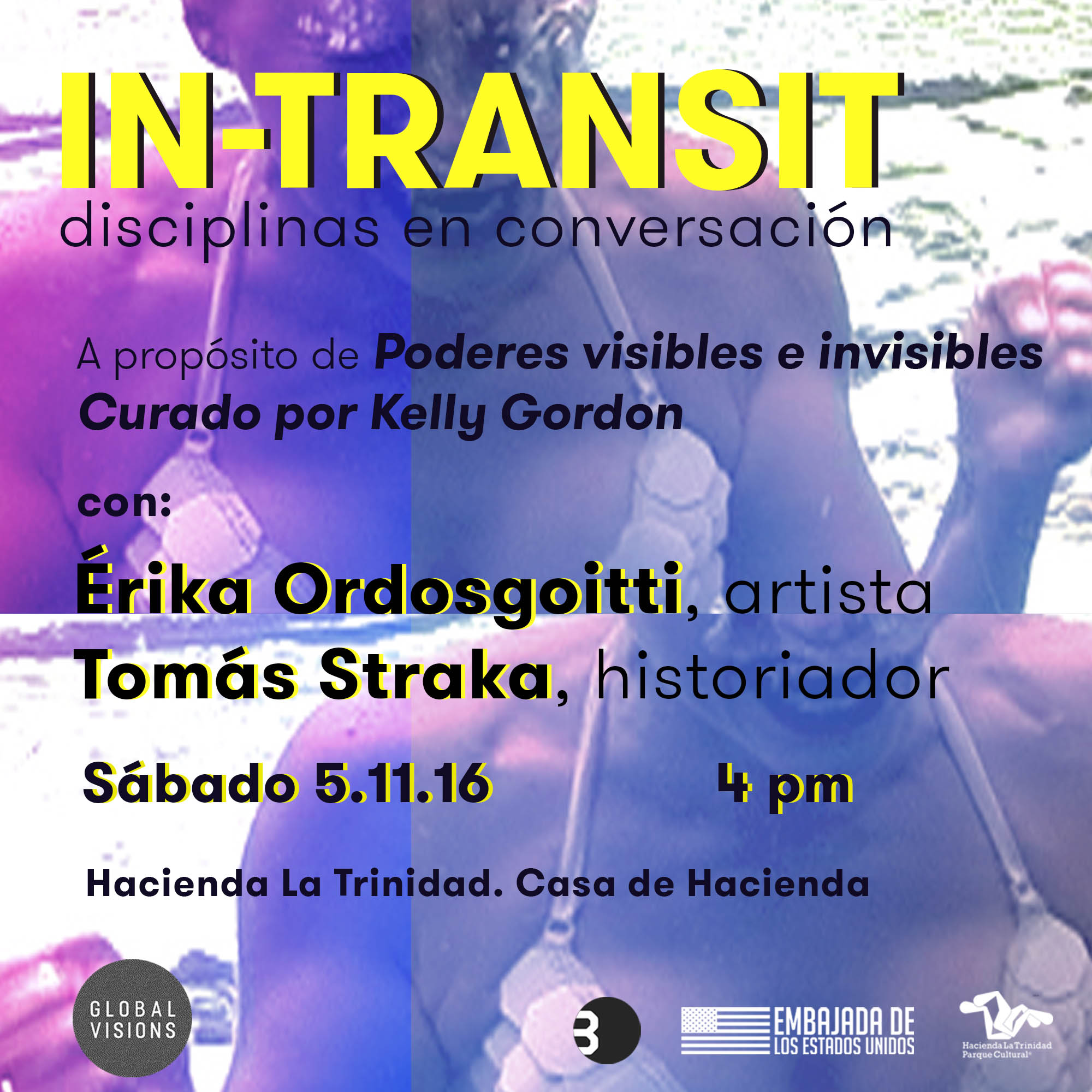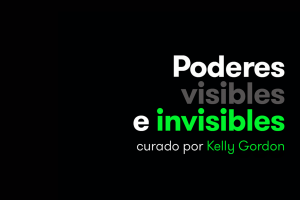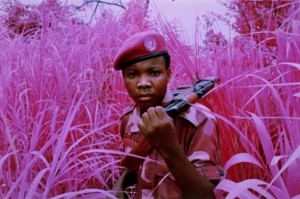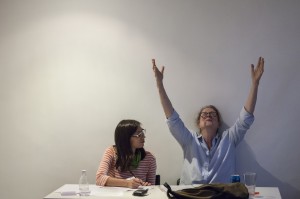In a new edition of IN-TRANSIT: Fields in Conversation, we invite you to listen, to discuss, and to question the structures of control and power obeyed by the daily dynamics of our contemporary world. IN-TRANSIT is based on conversation across disciplines, with a focus on listening as a fundamental aspect of dialogue.
The exhibition Powers Seen and Unseen, curated by Kelly Gordon, will serve as starting point for our guests to this iteration: Érika Ordosgoitti, an artist and cultural manager who works with her body as a vehicle of emancipation and empowerment, and Tomás Straka, a historian, analyst, and critical writer who has developed diverse studies of reality through historical research.
Powers Seen and Unseen is an open discussion that calls attention upon ideas, influences, and struggles that impact everyday life, shape worldviews, and nurture philosophical perspectives in relation to the construction of power dynamics. The works shown offer a wide spectrum of stimulating provocations, ranging from the very notions of time and space to the fictions of history and collective progress; from instinct and innocence to peaceful coexistence, desire, and surveillance.
The encounter will be held next Saturday, November the 5th at 4:00 PM at Hacienda House of the Hacienda La Trinidad Parque Cultural.
Érika Ordosgoitti is an artist and cultural manager. She develops her work through declarations of freedom, as she offers testimonies of acts of autonomy. She attempts to detonate situations of moral discomfort from the body, marking it as a social space in conflict, a place of resistance, and a first vehicle of emancipation and empowerment. Her work regards performance as the most abstract and polyglot form of poetry; thus, her videos and photographs are conceived in terms of action. She makes use of social networks and the Internet to distribute her work, and she studies the mechanisms of censorship that manifest in them. She plays with scandal, disgust, tension, aversion, discomfort, shock, brazenness, and laughter.
Tomás Straka is a critical writer, professor and researcher of the Universidad Católica Andrés Bello, and a member of the National Academy of History. He has attempted to understand reality with the instrument of historical research. His texts are regularly published in portals such as Nueva Sociedad, El Nacional and Debates IESA. He is the author of La voz de los vencidos, ideas del partido realista de Caracas, 1810-1821 (2000), La tradición de lo moderno. Venezuela en diez enfoques (2006), La épica del desencanto. Bolivarianismo, historiografía y política en Venezuela (2009), La república fragmentada. Claves para entender a Venezuela (2015), among others. He currently directs the graduate program in History at UCAB.

















